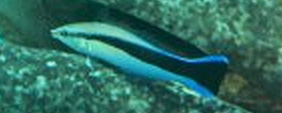 VANCOUVER, Wash. – There are very few cheaters among species that cooperate, according to a recently published paper co-authored by researchers at Washington State University. But information on this type of cheating is scarce, they found, and science would benefit from more thorough studies.
VANCOUVER, Wash. – There are very few cheaters among species that cooperate, according to a recently published paper co-authored by researchers at Washington State University. But information on this type of cheating is scarce, they found, and science would benefit from more thorough studies.
The paper, in Ecology Letters, is online at http://onlinelibrary.wiley.com/doi/10.1111/ele.12507/full.
“Cooperative interactions between species are so important; for example, we rely upon bees to pollinate our crops and beneficial microbes to help us digest our food,” said co-author Stephanie S. Porter, assistant professor in the School of Biological Sciences at WSU Vancouver. “It’s absolutely critical that we understand how to maintain or even harness these kinds of benefits.”

Evolutionary biologists have sought to understand how cooperation between species can endure, given that individuals would sometimes benefit more from cheating a partner, rather than cooperating.
If future research shows that cheaters commonly pose a real threat to cooperative interactions over time, “it’s in our best interest to figure out how and when cheaters are successful or thwarted,” Porter said.
She and her colleagues combed through many scientific studies and found little evidence that cheaters operate within cooperative interactions. However, they found that many studies have not collected the kind of information that would allow a rigorous evaluation of whether cheating is occurring.
“So one of the goals of our paper was to highlight ways that researchers could more carefully look for cheaters in natural populations,” she said.
Co-lead author of the paper, Emily Jones, started work on the study while doing postdoctoral work at WSU. She is now a research instructor at Rice University. Read the Rice article about the research at http://news.rice.edu/2015/09/21/study-its-not-cheating-unless-a-species-gets-hurt/.